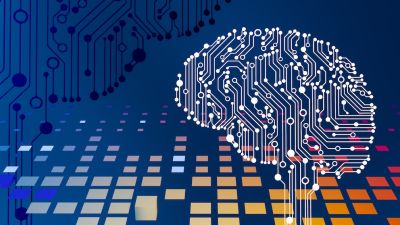
As promised in last month’s newsletter, here’s Bekani Nsibanyoni’s take on the importance of Artificial Intelligence within the NGO space.
Artificial Intelligence is rapidly transforming industries worldwide, and the NGO sector is no exception. The integration of AI into the workings of NGOs can have a profound impact on their ability to deliver services, streamline operations, and address complex societal challenges. To harness the full potential of AI, training is paramount. Let’s explore the advantages of AI training in the NGO space, and also delve into the pros and cons of AI adoption.
Advantages of AI Training for NGOs
- Enhanced Effectiveness: Proper AI training equips NGO staff with the knowledge and skills needed to leverage AI tools and techniques. This enables them to analyse data, make informed decisions, and optimise program outcomes. As a result, NGOs can carry out more effective interventions, ultimately leading to a greater positive impact on beneficiaries.
- Data-Driven Decision-Making: In an era where data is central to informed decision-making, AI training empowers NGO teams to collect, analyse, and interpret data more effectively. This data-driven approach enhances the precision of their initiatives and resource allocation.
- Resource Optimisation: NGOs often operate under resource constraints. AI training can help these organisations identify opportunities to optimise resource allocation, streamline operations, and make efficient use of funds and personnel. This optimisation can stretch limited resources further, allowing NGOs to reach more people in need.
- Innovation: AI training fosters a culture of innovation within NGOs. It encourages staff to explore cutting-edge technologies, develop new solutions, and pioneer novel approaches to address complex problems. This innovation can lead to more effective programs and increased relevance in a rapidly evolving world.
- Fundraising and Donor Engagement: AI training enables NGOs to harness the power of data analytics to better understand donor behavior. This knowledge can be used to personalise fundraising campaigns, improve donor engagement strategies, and ultimately result in increased support and funding for the organisation’s mission.
- Impact Measurement: AI training equips NGOs with the tools to better measure and track the outcomes and impact of their initiatives. This data-driven transparency provides donors, supporters, and stakeholders with accurate information, increasing trust and accountability.
- Automation of Repetitive Tasks: NGOs often grapple with administrative tasks that can be automated through AI. By automating routine processes, staff can free up valuable time to focus on more strategic and impactful work.
- Scalability: AI training provides NGOs with the skills to develop scalable solutions. This scalability enables organisations to extend their reach, serving more beneficiaries and communities efficiently without proportionally increasing their workload.
- Faster Response to Emergencies: In crisis situations, AI can be a vital tool for NGOs. It allows for real-time data analysis, enabling quicker decision-making and more efficient allocation of resources during emergencies, potentially saving lives.
- Skill Development and Capacity Building: Providing AI training to NGO staff not only benefits the organisation but also contributes to the professional growth and capacity of individuals. This, in turn, enhances their marketability and personal development, which can positively impact the NGO’s overall effectiveness.
Pros and Cons of AI Adoption
While AI offers numerous advantages, it’s essential to also consider the potential drawbacks and challenges associated with its adoption.
PROS
- Automation: AI automates repetitive and time-consuming tasks, boosting efficiency and productivity.
- Data Analysis: AI can process large datasets quickly, providing valuable insights for informed decision-making.
- Accuracy: AI systems perform tasks with a high degree of precision, reducing the likelihood of human errors.
- 24/7 Availability: AI operates continuously without the need for breaks, ensuring uninterrupted services.
- Handling Complex Data: AI excels at processing and understanding complex data patterns, benefiting fields like healthcare and finance.
- Personalisation: AI can analyse user behavior to offer personalised recommendations and experiences in marketing and content delivery.
- Automation of Dangerous Tasks: AI can undertake hazardous tasks, such as working in extreme environments, improving safety.
- Innovation: AI fosters innovation by enabling the development of new applications and technologies.
CONS
- Job Displacement: Automation through AI can lead to job displacement in certain sectors.
- Bias and Fairness: AI algorithms can inherit biases present in training data, potentially resulting in unfair outcomes.
- Lack of Creativity: AI lacks human creativity, intuition, and emotional understanding.
- Ethical Concerns: AI raises ethical concerns related to privacy, surveillance, and misuse.
- Reliability and Trust: Ensuring the reliability of critical AI systems and building trust can be challenging.
- Complexity: Developing and maintaining AI systems can be complex and require specialised skills.
- Unemployment: Widespread AI adoption could lead to unemployment in specific sectors.
- Security Risks: AI systems may be vulnerable to hacking and misuse, posing security risks.
- Dependency: Overreliance on AI without human oversight can lead to unforeseen consequences.
In conclusion, AI training is a critical investment for NGOs, enabling them to harness the advantages of AI while addressing potential challenges responsibly. By equipping NGO staff with the knowledge and skills to leverage AI effectively, organisations can enhance their effectiveness, resource allocation, and overall impact, ultimately advancing their missions and serving beneficiaries more efficiently. However, it’s vital for NGOs to approach AI adoption with caution, considering its ethical implications and ensuring responsible development and deployment. In doing so, they can unlock the full potential of AI for the betterment of society and the world.
 Bekani; thank you for your inspiring and insightful contributions to THINK and our IT department specifically. We wish you all the best on your new journey!
Bekani; thank you for your inspiring and insightful contributions to THINK and our IT department specifically. We wish you all the best on your new journey!
